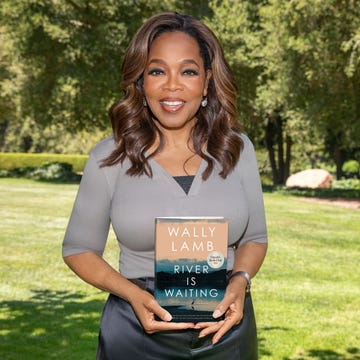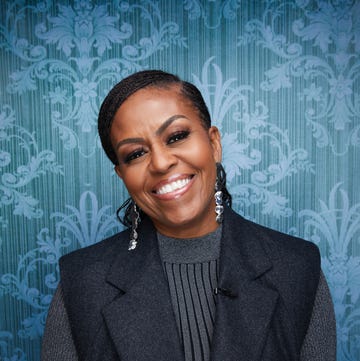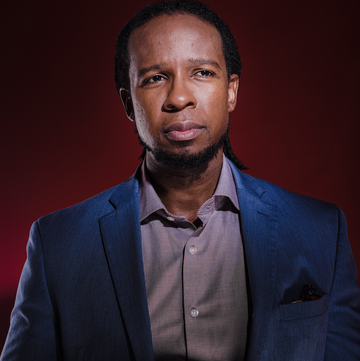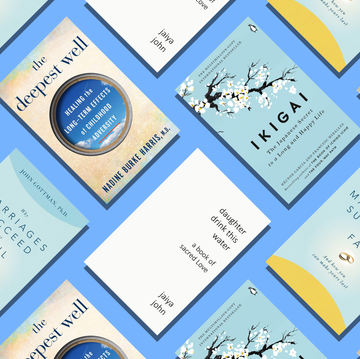I never thought I’d be the kind of kid who puts their parents in a home. In my mind, nursing homes were a dirty word, a place you sent people when you didn’t love them anymore. But the year my husband got diagnosed with cancer, my mother got diagnosed with dementia, and my stepfather’s Parkinson’s became dementia, too, everything changed for me.
I decided to write a memoir about this year, the worst of my life. It was meant to be my own The Year of Magical Thinking (the book Joan Didion wrote about her worst year), but my thinking didn’t become magical. If anything, the opposite happened. My thinking became clear and crispy. My life became a series of binaries.
When they found a growth on my husband’s pancreas, the doctors told us we had one choice: to wait until the surgery. We would wait until the tumor was excised to know what to do next, to know if he had the good, slow-growing cancer he could outrun or the bad, fast-growing cancer that he couldn’t.
We were lucky. It turned out to be the neuroendocrine cancer, the slow-growing form of the disease. Still, the process was crushing and time-consuming, and completely destabilizing.
My husband was diagnosed in 2023, the same year that the federal COVID-19 public health emergency ended. The pandemic was extremely hard on my mother and stepfather; the seemingly endlessly cyclical nature of lockdown life made days lose their meaning. My mother drank even more than usual, my stepdad’s Parkinson’s got worse—everything got worse and worse, the isolation supercharging their aging process.
For the first 20 years of my life, I took the luxury of seemingly endless choices for granted. Sure I had problems, but I had so many opportunities.
I had been born the only child of a once-famous woman. My mother, Erica Jong, whose book Fear of Flying was an urtext of the second-wave feminist movement, had me at 37. You didn’t have a child at 37 in the 1970s unless you really, really wanted one. I was born to huge material privilege: private schools, nannies, organic food.
Having parents with some money gave me a lot of options. Things like tutors, grad school, being able to travel, being able to go to dinner, being able to live without having to worry about where my next meal was coming from.
But while being the daughter of Erica Jong opened many doors, it quietly locked others. My mother was an alcoholic who, like so many alcoholics, always found herself drunk at absolutely the wrong time. It was my unfortunate inheritance. Her mother, Eda, drank vodka. I can remember the way my grandmother said “vodka” with a slightly Eastern European accent, which was weird because she was born in London. Grandma talked about vodka like it was some magic potion, a mythical elixir that might solve all your problems—as it did mine, for a slip of a second. And then it didn’t. I ended up getting sober at 19. Alcoholism was hereditary for me, but when I got sober, I was able to make choices again.
The choices allotted to me by my sobriety, like those allotted to me by my parents’ success and the luck of my own health, were privileges: options not everyone gets. My mother never got sober. We just had to keep going, there were no choices. My husband and I used to say, “The only way though is through.”
My husband is better now. My stepfather died in 2023. It was one of those horrible deaths that happened somewhere between my husband’s surgeries. Again, choices—there were none. I just needed to keep going. There was no place for anything but what was right in front of me. I just had to keep going, because if I didn’t keep going, I knew I would surely drown.
I wanted my glamorous alcoholic mother to live with me in her old age, but in the midst of endless, impossible decisions, I realized that I only had one choice.
My mother lives in a memory care facility now. My mother only has me, and I only have her. Except I don’t have her anymore. My mother still exists, her lungs still draw breath. But she is like a ghost, a hologram. She still has light blue eyes. She still has the same furrowed brow. She still offers to pay for things, but she can’t because I have all her credit cards; actually, that’s not true, her credit cards are gone. Her money sits carefully waiting to pay for her wildly expensive nursing home and her aide who comes each day to sit with her.
Choices are one of those great privileges that I didn’t even know were a privilege until I was into my annus horribilis. My year of magical thinking was actually a year of learning that sometimes the most magical thing you can do is the next right thing.

Molly Jong-Fast is an American writer, journalist, author, political commentator and podcaster. She is an MSNBC Political Analyst, the Host of the Fast Politics Podcast & Vanity Fair Special Correspondent. Jong-Fast is the author of three books and her memoir How To Lose Your Mother was published by Viking on June 3rd, 2025. You can find her on threads/x/ instagram as mollyjongfast.















